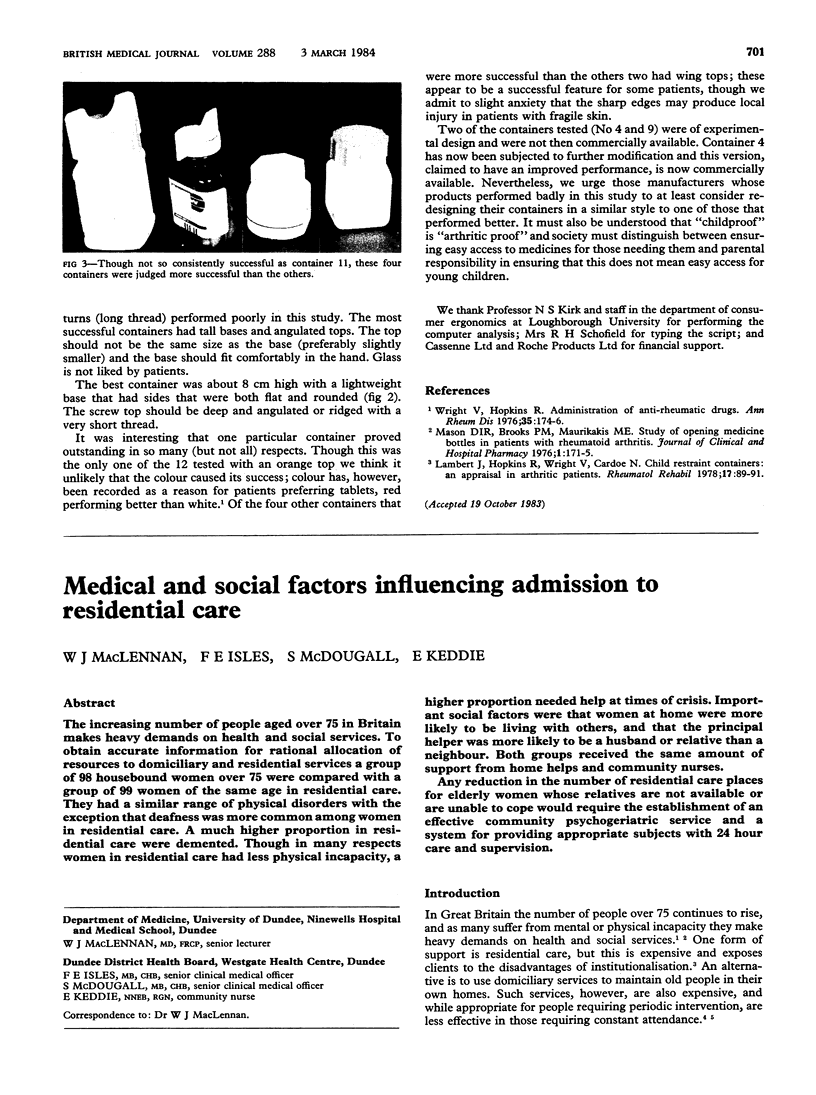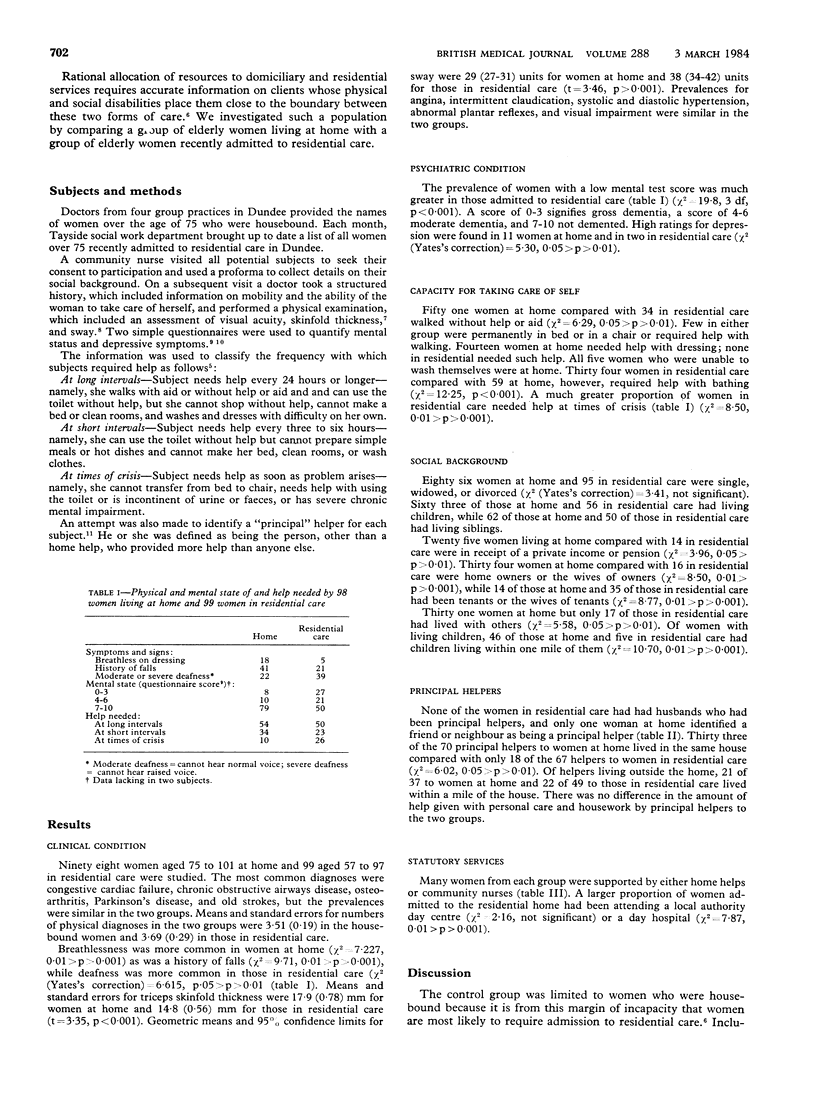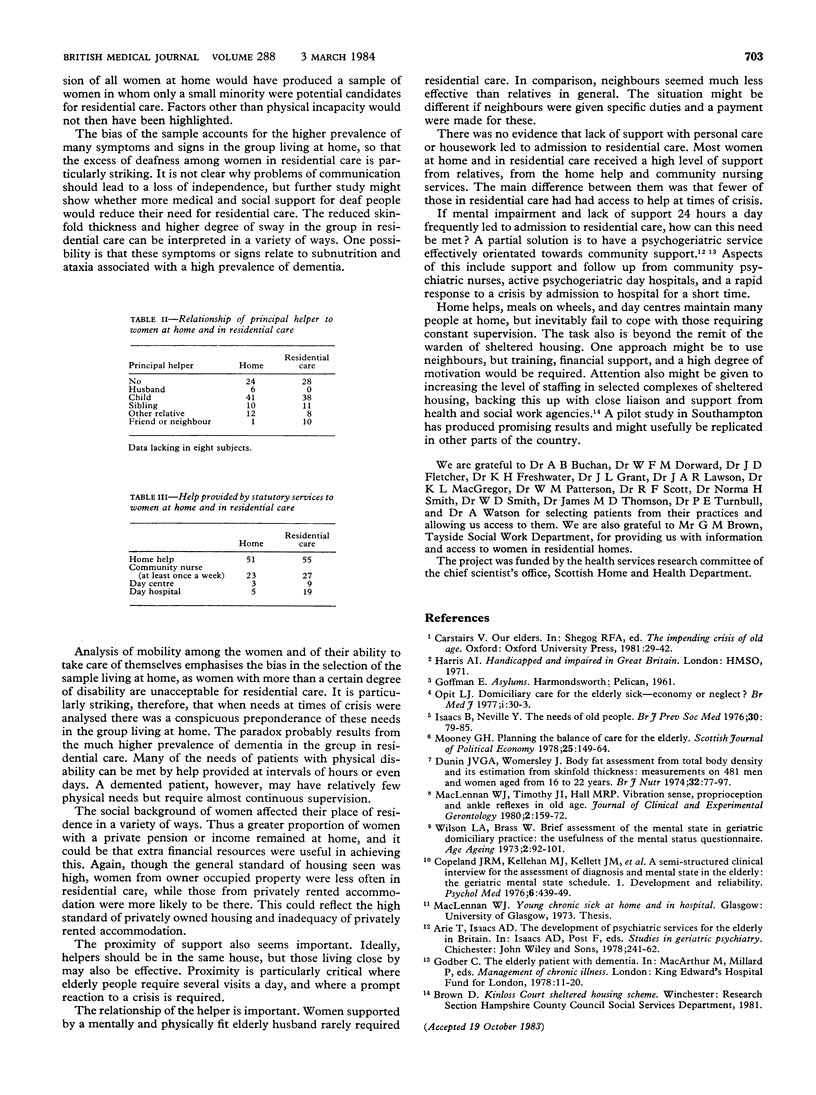Abstract
The increasing number of people aged over 75 in Britain makes heavy demands on health and social services. To obtain accurate information for rational allocation of resources to domiciliary and residential services a group of 98 housebound women over 75 were compared with a group of 99 women of the same age in residential care. They had a similar range of physical disorders with the exception that deafness was more common among women in residential care. A much higher proportion in residential care were demented. Though in many respects women in residential care had less physical incapacity, a higher proportion needed help at times of crisis. Important social factors were that women at home were more likely to be living with others, and that the principal helper was more likely to be a husband or relative than a neighbour. Both groups received the same amount of support from home helps and community nurses. Any reduction in the number of residential care places for elderly women whose relatives are not available or are unable to cope would require the establishment of an effective community psychogeriatric service and a system for providing appropriate subjects with 24 hour care and supervision.
Full text
PDF


Images in this article
Selected References
These references are in PubMed. This may not be the complete list of references from this article.
- Copeland J. R., Kelleher M. J., Kellett J. M., Gourlay A. J., Gurland B. J., Fleiss J. L., Sharpe L. A semi-structured clinical interview for the assessment of diagnosis and mental state in the elderly: the Geriatric Mental State Schedule. I. Development and reliability. Psychol Med. 1976 Aug;6(3):439–449. doi: 10.1017/s0033291700015889. [DOI] [PubMed] [Google Scholar]
- Durnin J. V., Womersley J. Body fat assessed from total body density and its estimation from skinfold thickness: measurements on 481 men and women aged from 16 to 72 years. Br J Nutr. 1974 Jul;32(1):77–97. doi: 10.1079/bjn19740060. [DOI] [PubMed] [Google Scholar]
- Isaacs B., Neville Y. The needs of old people. The 'interval' as a method of measurement. Br J Prev Soc Med. 1976 Jun;30(2):79–85. doi: 10.1136/jech.30.2.79. [DOI] [PMC free article] [PubMed] [Google Scholar]
- Wilson L. A., Brass W. Brief assessment of the mental state in geriatric domiciliary practice. The usefulness of the mental status questionnaire. Age Ageing. 1973 May;2(2):92–101. doi: 10.1093/ageing/2.2.92. [DOI] [PubMed] [Google Scholar]



